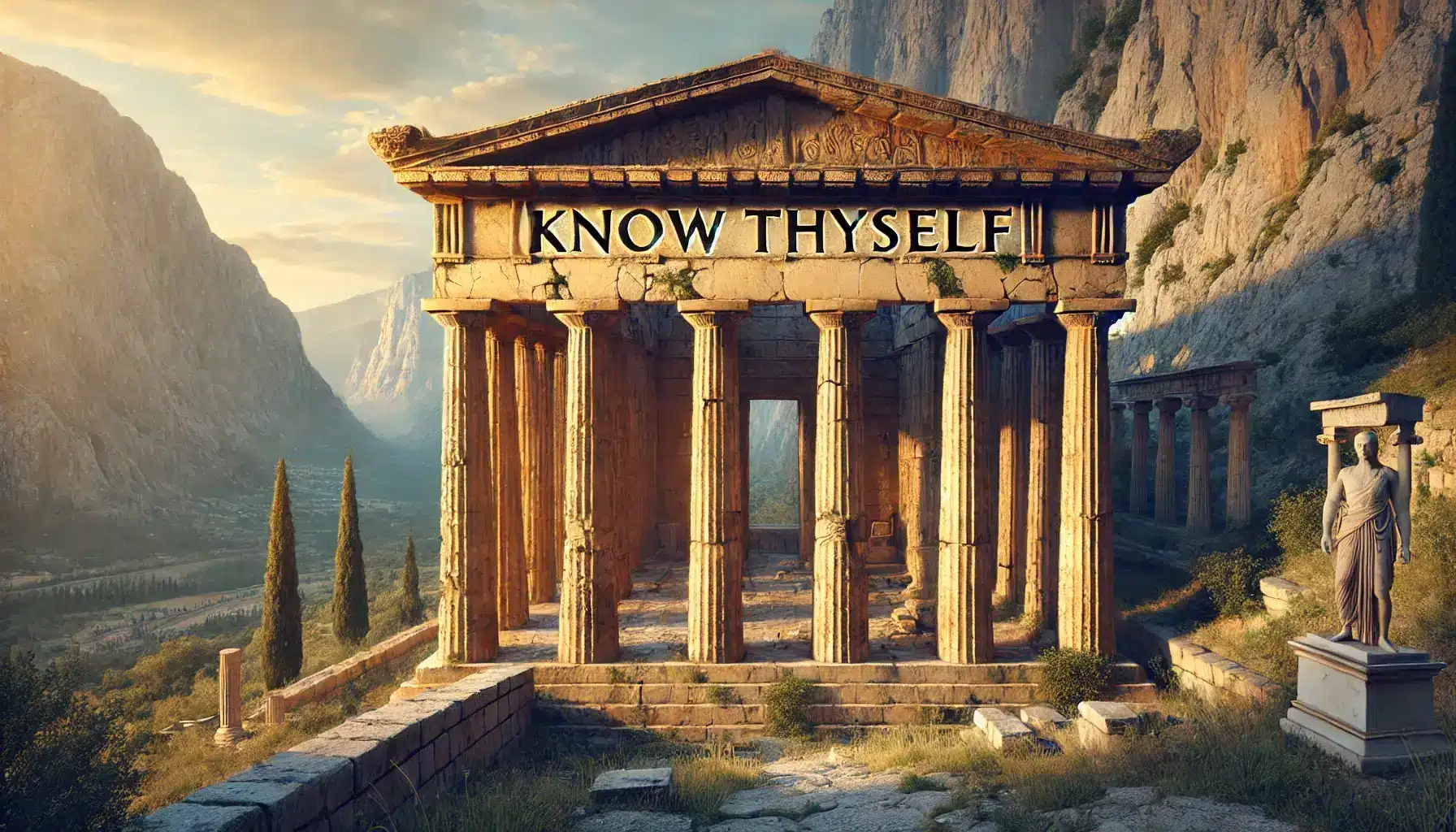Those who are interested in personal growth almost certainly encounter the phrase “Know thyself” at some point. Its origins are often traced to the ancient Greeks, notably attributed to the Delphic oracle. In old English, “thy” was used to indicate “you,” so in modern English the phrase is “know yourself.”
If you are not interested in non-dualism, that phrase likely means understanding your own nature—your character, values, motivations, and limitations. You can achieve this by examining your inner life: emotional patterns, personal beliefs, thought processes, values, goals, strengths, weaknesses, biases, fears, and aspirations. It involves understanding why these arise and what effect they have on you. This is essentially what psychology seeks to do—understand the “I.”
If, however, you are interested in non-dualism, the phrase doesn’t mean analyzing and understanding your personality traits, strengths, and weaknesses. For you, “know thyself” means recognizing the one who knows and understands your nature, values, motivations, limitations, and so on. This knower is your true self, which is pure awareness or consciousness—the essence of what you fundamentally are. More than that, “know thyself” is not an action performed by a separate knower upon a known entity. Instead, it is the recognition that the knower, the known, and the act of knowing are all manifestations of a single, indivisible reality.
In psychology, you might try to understand yourself by examining cause-and-effect patterns. In non-dualism, “know thyself” cannot be fulfilled by conceptual understanding or intellectual analysis. Instead, it involves identifying the effortless awareness that is always present.
To make it clearer, we might say that this knower—your true self, this awareness—is beyond the mind. Therefore, “know thyself” cannot be fully grasped through intellectual analysis. However, from the non-dualistic perspective, there isn’t a separate mind; the mind is also awareness. Everything is made from the same “stuff,” though it takes on different forms.
When you are advanced in non-dualism, everything becomes clear. But if you haven’t yet realized enlightenment and still have work to do, identifying thyself is a crucial step on your path. This realization often comes through meditative inquiry, self-inquiry practices (such as repeatedly asking “Who am I?”), patient and direct observation of one’s own experience, or by having someone point it out directly.
As you see, from the non-dualistic perspective, “know thyself” is entirely different from the psychological perspective. These two approaches also differ in how you maintain peace, happiness, and achieve your full potential. From the psychological standpoint, it generally requires ongoing effort—willpower, positive psychology techniques, denial, acceptance, or other strategies to maintain balance.
From the non-dualistic viewpoint, you realize that your true self—thyself—is the unchanging presence within which all experiences (thoughts, emotions, perceptions) arise and subside. You don’t need to understand why these occur; you can effortlessly decide whether to let them affect your present moment or not by choosing where to place your attention.
Know thyself—its reward is awesome!

